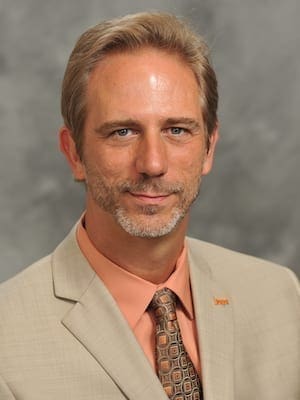The United Nations Universal Declaration of Human Rights is deeply consistent with the Christian faith, rightly understood, as I discussed previously.
There are, however, some incongruities between the declaration – really, all human rights declarations – and certain tendencies within Christian theology. Here, I think, the problem is with Christian thought and not with the declaration.
Classic Christian theology finds its center in the cross-event. Here, we believe, the innocent, perfect Son of God laid down his life for sinful humanity.
It is hard to overstate the centrality of the image of a dying Savior in the Christian moral imagination. The cross functions in the New Testament not just as the central theological image but also as the central moral paradigm.
Believers are instructed to be like Jesus, who voluntarily set aside all of his rights and privileges and condescended to the humility of human nature and the humiliation of crucifixion (Philippians 2).
The imitation of Christ therefore must take the form of a similar self-abnegation, a taking up of one’s own cross and laying down of one’s privileges and rights in order to love the neighbor above the self.
A number of Christian theologians and ethicists find this moral paradigm to be incompatible with an ethic of human rights.
Some go so far as to call human rights a fiction. Some label it as a product of the Enlightenment with no roots in Christian faith.
Many are suspicious of particular rights claims and of their extension to cover more and more issues and preferences.
A number of leading Christian theologians through the centuries have said that the true Christian may claim no rights, as Jesus claimed no rights.
However, most mainstream thinkers have gone on to say that the obligation to love one’s neighbor does create binding duties for the Christian.
This may provide sufficient grounds for at least the beginnings of a human rights ethic, to wit: Christ commands that we love our neighbors. Our neighbors are needy creatures who are vulnerable to harm from every side. The obligation to love our neighbors, therefore, creates a Christian duty to intervene on behalf of those neighbors when they are threatened or violated.
Contemporary human rights language is a way to systematize and codify rights corresponding with the needs that human beings have by virtue of being human.
It is a way of making concrete the obligations of neighbor-love. Therefore, human rights declarations are a useful aid for Christians as we seek to love our neighbors.
This path to human rights through neighbor-love is persuasive for many traditional Christians. However, it has structural problems that continually reappear.
One problem is that it tends to encourage a compassion- or love-driven response to instances of human need rather than a steady focus on the just structuring of human community.
A second problem is that ambivalence about claiming rights for oneself leads many Christians to submit to their own victimization without finding theological tools for mounting protest or resistance.
A third problem has already been mentioned – the reoccurring tendency of the Christians most impressed by the Cross to be most unimpressed by the language of human rights, and thus to disengage from the struggle altogether.
In my own work, I have sought to recover the biblical concept of God’s coming reign – which bridges Judaism and Christianity, Hebrew Scriptures and New Testament – as a sturdier theological foundation for a commitment to justice and human rights. When God reigns, God’s will is done.
God clearly wills the just treatment of every human being, all precious in God’s sight. This is clear across the biblical canon.
Human rights language is one critical way of defining what justice looks like for individuals as well as for communities.
I teach that Christians are called to be kingdom people – reign of God people – now, even as we wait for the final consummation of that reign at the end of time.
Christians are called to create churches that both embody justice in their own communal lives and advance justice in the public arena.
In this latter work, we must join forces with any and all people who feel that tug, that moral imperative, toward a planet in which the human rights of all people are honored.
We must be willing to cooperate with diverse people and groups who are fighting for the “advent of a world” of freedom, justice and peace.
Editor’s note: This is the second of a two-part reflection from David Gushee, which is the beginning of a larger series this week commemorating the 70th anniversary of the Universal Declaration of Human Rights. The previous article in the series is:
The UN Declaration of Human Rights and Christian Faith – Part 1 by David P. Gushee
Distinguished University Professor of Christian Ethics at Mercer University, Chair in Christian Social Ethics at Vrije Universiteit, and Senior Research Fellow at International Baptist Theological Study Centre. He is the author, co-author, editor or co-editor of 25 books and approximately 175 book chapters, journal articles and reviews.


